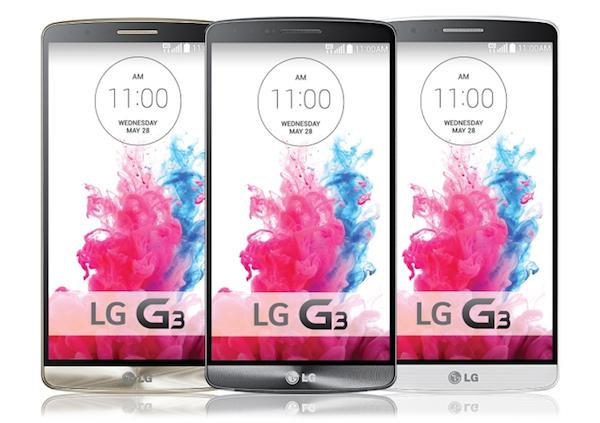
The LG G3 is LG's best phone since . . . The G2. It hasn't even been a year since the manufacturer announced and released their G-branded flagship device of 2013, but we're just about a month away before the device finally launches for a U.S.-based wireless carrier, and then the floodgates open for every other carrier 'round these parts, too. I know a lot of people who are waiting for their chance to buy the device with a QHD display, so they can look at all the pretty videos and pictures wherever they go.
And when you buy a phone that has its main selling point as the display, and let's not beat around the bush here: the LG G3's main selling point is the display, which has a resolution of 2560x1440 and markets itself as a "2K display," because that sounds amazing. And no one should fault LG for their marketing, either, because they deserve it. It's an impressive feat to shove a QHD display that measures "only" 5.5-inches. Our smartphones are ridiculous pieces of technology, crammed together with more technology, and we should marvel at the ridiculousness that they are.
Ridiculously awesome, but ridiculous nonetheless. (Ridiculous is a good thing in this context, mind you.)
The reviews for the G3 echo this mentality, right from the get-go. Everyone that uses the G3 loves the G3, based on what I've seen. It may not be a metal handset, but it certainly looks the part, and with the large screen, most people will tell you the G3 feels great in the hand. Essentially, LG took all of the good things from the G2, made them better, and removed as many of the bad things as they could for the successor. In the end, they have a winner on their hand, and LG's momentum from last year is certainly not lost.
LG's G3 isn't the only device with a 2K display. And yet, I look at them as the company that's essentially opened the door for everyone else. Despite the fact that Samsung, and Oppo before them, have already released their own devices with a QHD display, LG's the one I look at to kicking it off for everyone else. And obviously there are going to be other companies that follow suit. But, here's the thing: what was the point of being early, exactly?
This isn't the first time that a company has jumped the gun when it comes to technology, and released something ahead of the curve. It won't be the last. But LG's (and Samsung's and Oppo's) attempt to basically be the early adopters of manufacturers when it comes to QHD displays is a pretty big disservice to smartphone buyers. Why? Because there isn't a lot of content out there that can actually take real advantage of the awesome new displays.
I'm not saying that there is no content out there that's shot in ultra high-definition, because obviously there is. It's out there, and you can find some of the videos on YouTube and other video sharing services. But it's not a lot. And it's certainly no comparison to the rest of the media that's out there, which tops out at 1080p HD.
The best experience you're going to have with that QHD display is with the user interface on the phone. Awesome? There's never been any doubt that videos are going to get better, that eventually, probably even in the next year or so, we're going to see 1080p no longer be the standard, but the lesser option. When that happens, these displays will actually make sense. By then, LG will be on the G4, Samsung on the Galaxy S6, and whoever else will have their own QHD handset.
So, great, you were first, but what does that really count for when the content can't actually match what you're looking at it on? Moreover, does it really matter at all if when the content can actually make use of the display, everyone else has it, too?
So, we've capped out displays. We've been passed the point where people can see pixels now for a long, long time, and now we're just showing off. Which is great! But, now that we've basically done all the showing off we can with our smartphone/tablet screens, what's next? I'd say processors, but I'm pretty sure we've already gone down that path. Cameras? That could very well be, considering many smartphones out there still leave a lot to be desired here. Batteries? That probably should be where it goes, but I just don't have a lot of faith that we'll ever see it happen.
What do you think the next big thing should be? What should get all the manufacturer's attention, until we upgrade it to irrelevance (for a time)? Let me know!